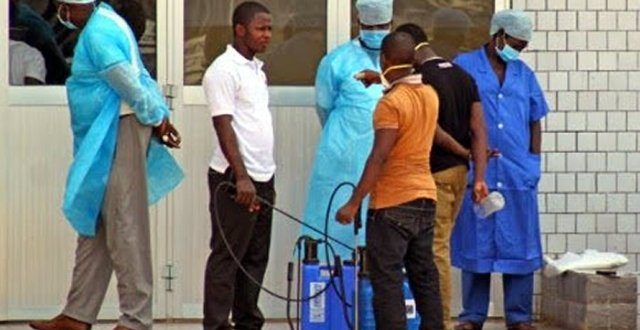The Ghana Health Service has said Ghana has recorded a total of nine suspected cases of the deadly coronavirus infection, but they have all tested negative.
These nine cases include the two recent ones reported at the Korle bu Teaching Hospital on Wednesday.
The two – a Chinese and an Argentine – who have been living together in the country for a while were isolated at the Korle Bu Teaching Hospital, their blood samples were taken and sent to the medical research institute on Wednesday.
“We wish to provide assurance to the people of Ghana that the Government, Ministry of Health/Ghana Health Service working in collaboration with partners are doing everything possible to prevent and protect against the importation of the virus into the country and prevent spread,” the two health institutions said in a short release.
As of February 6, 2020, there have been 28,280 confirmed cases of the virus and 565 deaths globally.
Coronavirus
Studies have pointed to bats or snakes as the origin of the Novel Corona Virus Infection (nCoV) based on the genetic analysis of the virus – bats being the native host and snakes being the most logical intermediate host.
Both rats and snakes are sold at Wuhan’s Huanan Seafood Wholesale Market, believed to be the origin of the outbreak.
WHO says it is working closely with global experts, governments and partners to rapidly expand scientific knowledge on the new virus to track the spread and virulence of the virus, and to provide advice to countries and individuals on measures to protect health and prevent the spread of this outbreak.
Basic protective measures against the new coronavirus
Wash your hands frequently
Wash your hands frequently with soap and water or use an alcohol-based hand rub if your hands are not visibly dirty.
Why? Washing your hands with soap and water or using alcohol-based hand rub eliminates the virus if it is on your hands.
Practice respiratory hygiene
When coughing and sneezing, cover mouth and nose with flexed elbow or tissue – discard tissue immediately into a closed bin and clean your hands with alcohol-based hand rub or soap and water.
Why? Covering your mouth and nose when coughing and sneezing prevent the spread of germs and viruses. If you sneeze or cough into your hands, you may contaminate objects or people that you touch.
Maintain social distancing
Maintain at least 1 metre (3 feet) distance between yourself and other people, particularly those who are coughing, sneezing and have a fever.
Why? When someone who is infected with respiratory disease, like 2019-nCoV, coughs or sneezes they project small droplets containing the virus. If you are too close, you can breathe in the virus.
Avoid touching eyes, nose and mouth
Why? Hands touch many surfaces which can be contaminated with the virus. If you touch your eyes, nose or mouth with your contaminated hands, you can transfer the virus from the surface to yourself.
If you have fever, cough and difficulty breathing, seek medical care early
Tell your health care provider if you have travelled in an area in China where 2019-nCoV has been reported, or if you have been in close contact with someone with who has travelled from China and has respiratory symptoms.
Why? Whenever you have fever, cough and difficulty breathing it’s important to seek medical attention promptly as this may be due to a respiratory infection or other serious condition. Respiratory symptoms with fever can have a range of causes, and depending on your personal travel history and circumstances, 2019-nCoV could be one of them.
If you have mild respiratory symptoms and no travel history to or within China
If you have mild respiratory symptoms and no travel history to or within China, carefully practice basic respiratory and hand hygiene and stay home until you are recovered, if possible.
As a general precaution, practice general hygiene measures when visiting live animal markets, wet markets or animal product markets
Ensure regular hand washing with soap and potable water after touching animals and animal products; avoid touching eyes, nose or mouth with hands; and avoid contact with sick animals or spoiled animal products. Strictly avoid any contact with other animals in the market (e.g., stray cats and dogs, rodents, birds, bats). Avoid contact with potentially contaminated animal waste or fluids on the soil or structures of shops and market facilities.
Avoid consumption of raw or undercooked animal products
Handle raw meat, milk or animal organs with care, to avoid cross-contamination with uncooked foods, as per good food safety practices.
Source: Myjoyonline.com
 Home Of Ghana News Ghana News, Entertainment And More
Home Of Ghana News Ghana News, Entertainment And More





